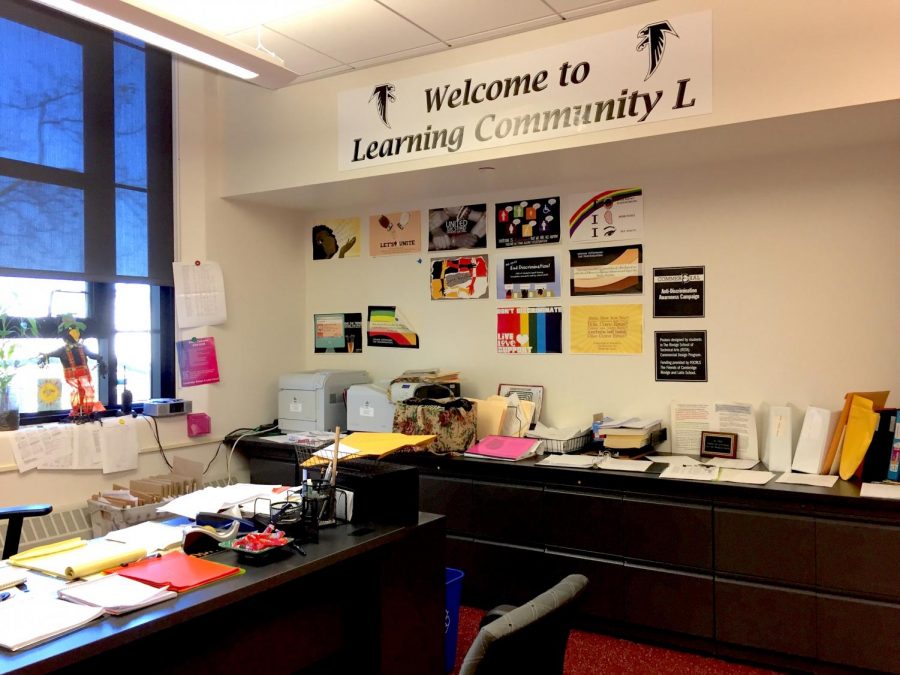Support Resources at CRLS: A Q&A with Principal Smith
Pictured: One of CRLS’ four Learning Communities.
October 31, 2017
The Register Forum sat down with Principal Smith this month to discuss the support resources that are available for students, staff, and administration at the school. This interview has been edited for clarity and concision.
Register Forum: Are there any updates on the school reaching out to the superintendent and school administration for developing support resources?
Damon Smith: Whenever there is an emergency or crisis in our school, we have what is known as the Acute Response Team—it’s called the ART. The ART consists of all the Learning Community-based administrators. That would be the two deans, the social workers, the school psychologists, the guidance counselors, and the school nurses from the Teen Health Center. We come together and … talk about what happened and how we need to support the students, the staff, and the community in light of what happened. We put a plan in place … and sometimes that plan involves calling in grief counselors. The school district has a relationship with the Riverside Trauma Center, so whenever we need to have grief counselors because of something that has happened, we call the Riverside Trauma Center.
RF: Is there any information on how many people use support offered by the school?
DS: It was not a significant number because … we have changed [how we respond to a death in the community]. When we meet as the ART, we used to just say, “Call the Riverside Trauma Center and we’ll go from there.” Now, before we make an announcement about a moment of silence for a person [who has passed away], we touch base with folks that we believe will be significantly impacted. So it’s not a shock. To the people that are really, really aware of it—like siblings, relatives, or people who were very close—we try to [say], … “Somebody needs to check in with this person,” because we don’t just want to make an announcement that just announces somebody’s passing that completely shocks somebody.
So the numbers of people who went to see the grief counselors [after recent announcements] were much lower than what we’ve had in the past because we actually waited. With Ms. [Karen] Williams and with Isaiah [Carpenter-Winch ‘15], we knew the information on a Monday or something like that, and we didn’t have a moment of silence until, like, a Tuesday. And in between that time, we connected with students and staff members that we thought might be particularly vulnerable.
So, for Isaiah’s former teachers, we connected with them one-on-one. Before we even sent anything out, the night when we found out, we were calling those teachers. Because you don’t want to just blast it out [in a mass email] and have people read it and be completely shocked by it. Ms. Williams was a little different in that people who worked with her knew before we knew, but we still reached out and supported them before we broadcasted it to everybody else. So when the [Riverside] Trauma Center came in, they didn’t have as many people who would normally go to them because we had already reached out to a lot of those folks and said, “Do you need support? Here’s what we can do for you.” It’s just an extra layer.
RF: When are the grief counselors here?
DS: They only come for, like, a day or two, or a couple of days, depending on whatever the situation is.
RF: So when they are here, how can students and staff access the support?
DS: If there are students who need support, they should go to their Learning Community office. [Their Learning Community] will assess what that student may need, and that might mean needing to talk to a grief counselor. No student goes to find a grief counselor on their own—what happens is that we filter everybody through their Learning Community.
RF: When the grief counselors aren’t here, what support is available to students or staff who still need it?
DS: For us, with the relationships that we want to create with kids, any time that there’s a problem or a situation or an issue, we want you to go to your Learning Community. And then we will identify, from there, what support a student may need. Sometimes it’s really tough for a student to start talking to somebody that they don’t know. … So if we can handle it in the house, we try to handle it in the house. But sometimes, there’s a special level of support that is needed, so we bring in some extra professionals.









